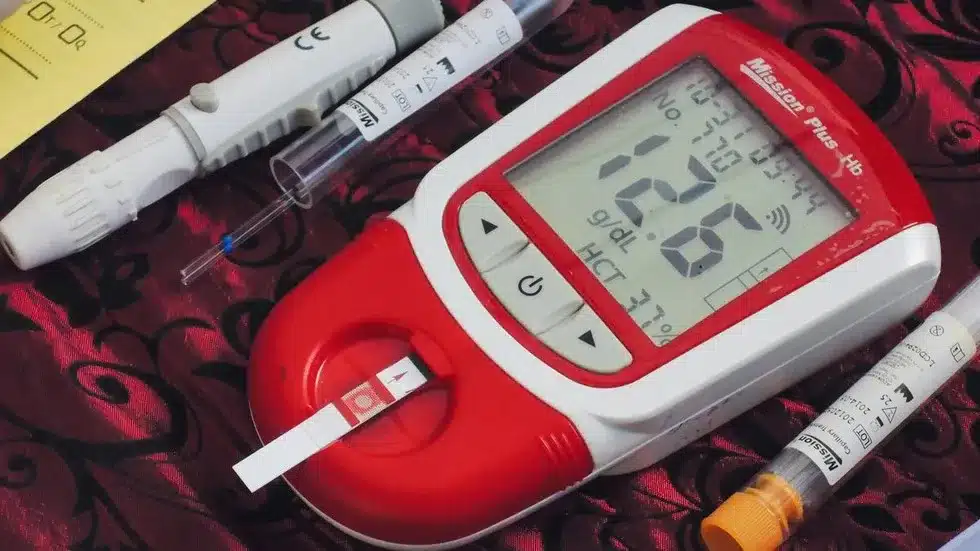About Hemoglobin A1C (HbA1C) Test
- It is one of the most commonly-used tests to diagnose pre-diabetes and diabetes (both type 1 and type 2) and to help manage diabetes.
- It is also known as the glycated haemoglobin or glycosylated haemoglobin test.
- Hemoglobin is the part of your red blood cells that carries oxygen from your lungs to the rest of your body.
- It is an important blood test that gives a good indication of how well your diabetes is being controlled.
How does the test work?
- Sugar enters your bloodstream from the food you eat. The sugar, or glucose, attaches to the haemoglobin in your red blood cells. Haemoglobin is a protein that transports oxygen to all the cells of your body.
- Everybody has some sugar attached to their haemoglobin. Those with pre-diabetes and diabetes, however, have more.
- The HbA1C test measures the percentage of your red blood cells that have sugar-coated, or glycated, haemoglobin.
What is Diabetes?
- It is a chronic disease that occurs when the pancreas can no longer make insulin, or the body cannot make good use of the insulin it produces.
- Insulin is a hormone that regulates blood glucose.
- Not being able to produce or use insulin effectively leads to raised glucose levels in the blood, known as hyperglycaemia.
- Over the long-term high glucose levels are associated with damage to the body and failure of various organs and tissues.
- Diabetes is a major cause of blindness, kidney failure, heart attacks, stroke, and lower limb amputation.
Q1) What is Insulin?
It is a hormone that regulates blood glucose. Not being able to produce or use insulin effectively leads to raised glucose levels in the blood, known as hyperglycaemia. Over the long-term high glucose levels are associated with damage to the body and failure of various organs and tissues.
Source: What is the HbA1C test and why is it used to check for diabetes? | Explained
Last updated on June, 2025
→ UPSC Notification 2025 was released on 22nd January 2025.
→ UPSC Prelims Result 2025 is out now for the CSE held on 25 May 2025.
→ UPSC Prelims Question Paper 2025 and Unofficial Prelims Answer Key 2025 are available now.
→ UPSC Calendar 2026 is released on 15th May, 2025.
→ The UPSC Vacancy 2025 were released 1129, out of which 979 were for UPSC CSE and remaining 150 are for UPSC IFoS.
→ UPSC Mains 2025 will be conducted on 22nd August 2025.
→ UPSC Prelims 2026 will be conducted on 24th May, 2026 & UPSC Mains 2026 will be conducted on 21st August 2026.
→ The UPSC Selection Process is of 3 stages-Prelims, Mains and Interview.
→ UPSC Result 2024 is released with latest UPSC Marksheet 2024. Check Now!
→ UPSC Toppers List 2024 is released now. Shakti Dubey is UPSC AIR 1 2024 Topper.
→ Also check Best IAS Coaching in Delhi
























